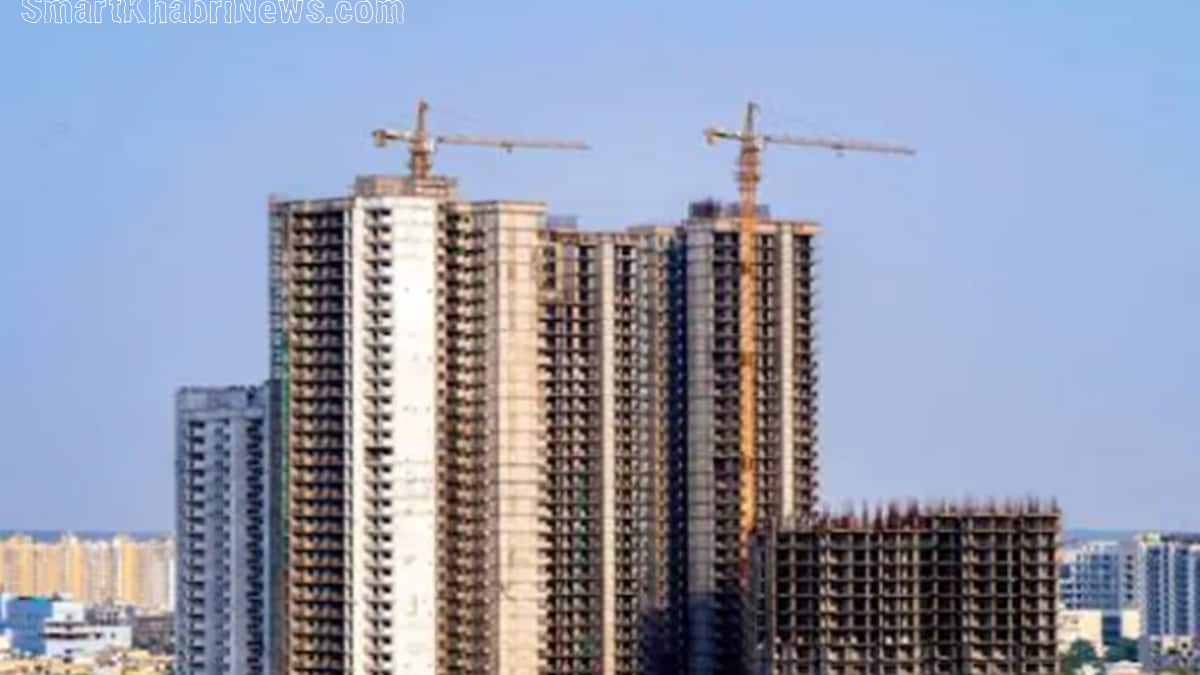Investing in an under-construction flat in an Indian society is a major decision that demands careful consideration of several crucial factors. The suitability of such an investment depends on your budget, requirements, and risk tolerance. Many homebuyers opt for under-construction properties for reasons like:
- Lower Price: Under-construction flats typically come with a lower price tag than completed ones. Builders haven’t incurred the full construction cost, making it an opportunity to save money, especially in high-demand locations.
- Flexibility: Booking a flat in an under-construction society often allows you to customize the layout and finishes according to your preferences, a luxury not always available with completed flats.
- Appreciation: As construction concludes and the society develops, the value of your flat is likely to appreciate. This potential for profit upon resale can be enticing.
However, there are associated risks, such as project delays, which can be attributed to various factors, including adverse weather conditions, unforeseen site challenges, or financial setbacks for the builder. Delays can lead to prolonged wait times before you can move into your flat, a prevalent issue in Delhi-NCR, where buyers have been waiting for their dream homes for years while battling legal disputes.
In essence, the decision to book an under-construction flat in a society is personal and should be weighed carefully, considering both advantages and disadvantages. Here’s a comprehensive list of factors you should keep in mind:
1. Builder’s Reputation
Research the builder’s reputation and track record. Seek reviews, talk to previous buyers, and investigate any legal disputes involving the builder.
2. Project Approval and Licences
Ensure that the project has obtained all necessary approvals and licenses from local authorities and government bodies. Check for environmental clearances, land titles, and land-use permissions.
3. Project Location
Evaluate the project’s location, considering accessibility, proximity to schools, hospitals, markets, public transportation, and future development plans in the area.
4. Project Plan and Layout
Review the project’s architectural plans, layout, and floor plans to ensure they align with your requirements. Verify the presence of open spaces, amenities, and green areas within the society.
5. Legal Due Diligence
Hire a legal expert or lawyer to conduct due diligence on the property. Verify the builder’s legal ownership of the land and check for pending litigations or disputes.
6. Financial Aspects
Examine the total cost, including the base price and additional charges like maintenance, parking, and taxes. Understand the payment schedule and ensure it fits your financial capability. Be aware of penalties for payment delays.
7. Construction Timeline
Gain a clear understanding of the project’s expected completion date and investigate whether the builder has a history of delivering projects on time.
8. Builder-Buyer Agreement
Thoroughly review the builder-buyer agreement, paying close attention to clauses related to possession dates, penalties for delays, and the scope of allowed changes or customizations. Consider having a real estate expert review the agreement.
9. Quality and Specifications
Understand the quality of construction materials, fixtures, and finishes that will be used in your flat. Ensure they meet your expectations.
10. Payment Plan
Check if the builder offers a construction-linked or time-linked payment plan. Understand the payment milestones and their timing.
11. Loan Approvals
Confirm that the project has received approval from banks and financial institutions for home loans, as this is crucial for securing your financing.
12. Legal Compliance
Ensure that the project complies with RERA (Real Estate Regulation and Development Act) regulations, and the builder has registered the project with the local RERA authority.
13. Amenities and Common Areas
Verify the promised amenities and common areas within the society, including parks, parking, clubhouse, gym, and security arrangements.
14. Maintenance Charges
Understand the maintenance charges and how they will be calculated. Ensure they are reasonable and fit within your budget.
15. Legal Documentation
Ensure all legal documentation, such as the sale deed, possession letter, occupancy certificate, and completion certificate, is in order before making the final payment. Some documents may only be granted by authorities after project completion.
16. Home Inspection
Before taking possession, conduct a thorough inspection of the flat for any defects or unfinished work. Communicate your concerns in writing, and ensure the builder addresses these issues.
Being well-informed and conducting thorough due diligence are essential when buying an under-construction flat in India. This ensures the protection of your investment and minimizes the risk of potential legal or financial issues down the road. Consulting with a real estate advisor or legal expert is highly advisable throughout the process.
